Unsecured loans are more easily available and reduce the risk for individuals who borrow, as they do not require any kind of security. Usually, with lower interest rates, secured loans demand collateral to function as a guarantee, therefore increasing the risk for the borrower. 6Understanding the differences helps you to choose the best loan for your particular financial situation.
Knowing Secured Versus Unsecured Loans
Knowing the kind of loan you want becomes vital when you need one. Both unsecured and secured loans have different advantages, features, and possible concerns. Making a smart choice calls for evaluating your ambitions and financial circumstances. One major benefit of unsecured loans is their minimization of any personal risk and absence of collateral. If your financial circumstances call for flexibility and no risk, unsecured loans could be perfect.
What are unsecured loans for?
Unsecured loans are forms of financing whereby borrowers are not required to show collateral, a major asset like a car or property, to support the loan. Since no collateral is required, unsecured loans usually offer less documentation and faster approval times. Loan eligibility depends on the credit profile of the borrower; hence, your financial behavior is essential to guarantee it. Personal loans, credit cards, and school loans are among the examples of unsecured loans.
Many consumers find unsecured
Many consumers find unsecured loans appealing because of their simplicity and lack of related dangers. If reducing personal risk is crucial, one could want to give unsecured loans some thought. Discover more about lenders such as MaxLend loans, one instance of an entity providing easily available financial goods like these. For people looking for immediate financial help, unsecured loans give peace of mind free from collateral and a simple application process. For borrowers with different financial demands, their emphasis on consumer ease and flexible terms helps them to be a reliable alternative.
Secured loans are
On the other hand, secured loans call for borrowers to provide the lending agreement’s collateral—an asset. This collateral protects the lender and guarantees loan payback via regular payments or collateral value should the borrower fail to pay back. Sometimes this security results in lowered interest rates and higher loan limits. Typical secured loans are mortgages and auto loans, in which case the funded asset usually serves as collateral.
Asset of value
If you have an asset of value you are willing to commit as security, secured loans may appeal. Still, one should be aware of the possible risks connected to secured loans. Ignoring loan obligations could cause the asset under collateral to be lost. Before applying for a secured loan, have a strong payback plan to help you avoid this risk.
Unsecured Loan Benefits and Drawbacks
Unsecured loans have many benefits. These loans are more reachable and less anxiety-inducing since they do not demand collateral; hence, they naturally pose less risk to borrowers. Usually faster and with shorter processing timeframes, loan applications help you to get the necessary money rapidly. Flexible and catering to different financial circumstances, the repayment terms and amounts are also
Unsecured loans could
Unsecured loans could, however, potentially have certain negative effects. Because collateral is absent, these loans can have higher interest rates than their secured equivalents. Reducing personal risk comes at a trade-off in this a higher expense. Stressing credit history, debt-to-income ratios, and consistent income sources, unsecured loans may also have more demanding approval criteria.
Advantages and disadvantages of secured loans.
Given their lower risk to lenders resulting from collateral involvement, secured loans have lower interest rates. For major purchases like purchasing a house or a new car, these loans are therefore especially favorable since they allow access to bigger loan amounts and come with longer repayment terms.
Secured loans carry an inherent risk of losing the collateralized asset in the event of payment default, notwithstanding these advantages.
Factors Affecting Loan Type Choice
Whether you choose a secured or unsecured loan calls for careful review of your risk tolerance, financial status, and objectives. You have to balance elements, including your credit profile, loan goal, interest rates, loan terms, and related hazards. An unsecured loan will better fit your particular tastes and demands if reducing risk is your top goal and you want a streamlined lending process.
Finally, empower your financial path.
On the other hand, if you want a larger loan with maybe reduced interest rates and have a valuable asset to give as collateral, a secured loan could show benefits. In the end, knowing your financial goals and limitations will help you choose the loan type that best fits your needs. Are car and mortgage secured loans only?
Not very much at all. Common secured loans are mortgages and auto loans, but you can also receive secured credit cards and loans backed by savings accounts, investments, or even jewelry.
What happens should
What happens should I default on an unsecured loan? The lender might go legal on you. Their forwarding of your account to collectors also greatly affects your credit report. Sometimes, they will get a court ruling to block your bank account or garnish your pay.
Do Both Loan Types Show Up on My Credit Report? True. Both secured and unsecured loans affect your credit score and are reported to credit agencies. On-time payments help to strengthen your credit; late or missed payments damage it.
Making wise borrowing
Selections depend on knowing the main variations between secured and unsecured loans. Here is a synopsis:
Though they have lower rates, secured loans run the risk of losing collateral.
Though they provide quicker access, unsecured loans can have higher interest rates and tougher credit standards.
Always assess your financial situation, the whole cost of borrowing, and your capacity for payback before signing any loan arrangement.
Final thought
Regarding financing, unsecured as well as secured loans have different advantages and drawbacks. Making wise judgments when looking for financial answers depends on knowing their differences. For many consumers, unsecured loans appeal since they offer a simple, risk-averse choice free of collateral. Conversely, in the framework of risk management, secured loans present good conditions.
Reaching your financial objectives calls for carefully assessing all features of every loan kind and open, open exploration of your possibilities. This will help you to equip yourself to start a financial road catered to your requirements and priorities, therefore promoting security and development on the road to economic success.
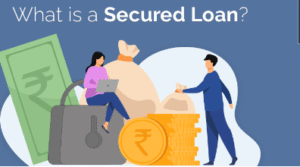
Important Variations between Unsecured Loans and Secured
Conclusion
Magnificent. This makes careful repayment management more difficult since late payments could lead to asset forfeiture. Borrowers also have to handle extra collateral evaluation or registration fees, which raise starting borrowing rates.
This will help you to equip yourself to start a financial road catered to your requirements and priorities, therefore promoting security and development on the road to economic success.
FQS
Which loan type is simpler to obtain?
Generally speaking, secured loans are easier to obtain, especially if your credit score is low or your credit history is short. The collateral gives the lender hope since it shows their losses can be recovered.
Unsecured loans call for consistent income and a good credit record. Lenders are increasing their risk, so they are more careful regarding approval.
Are secured loans’ interest rates lower?
Quite generally, yes. Secured loans let lenders assume less risk, so their interest rates are lower. For instance, typically speaking, mortgage rates are less than personal loan rates.
Because of their higher default risk, unsecured loans—especially credit cards and payday loans—tend to have much higher interest rates.
With a secured loan, may I lose my property?
Yes. Should you default on a secured loan, the lender legally may take the collateral you promised. In a mortgage default, for example, your house can enter foreclosure.
Although they can cause lawsuits, wage garnishment, or major credit score damage, unsecured loans do not involve asset confiscation.
Which Loan Type Would Be Most Appropriate for Me?
That relies on your circumstances.
If you have assets, require a lot of money, and wish for lower interest rates, get a secured loan.
If you need urgent cash, prefer not to jeopardize your assets, and have a clean credit record, choose an unsecured loan.
How Does My Credit Score Change Based on Each Loan Type?
Both sorts of loans affect your credit score. While late payments and defaults lower your score, timely returns help to raise it. But unsecured loans expose more risk to your credit should you default, as the lender has fewer means of recouping the money.
Is it possible to make an unsecured loan a secured one?
Particularly if you’re having trouble paying back an unsecured loan and want to lower interest rates, some lenders might let you turn one into a secured one with collateral. But this is not an ordinary procedure, so typically you will need to negotiate with your lender. https://liferools.com/wp-admin/
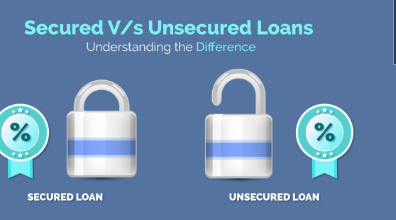
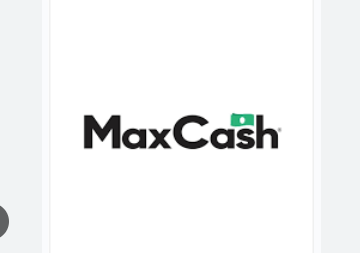
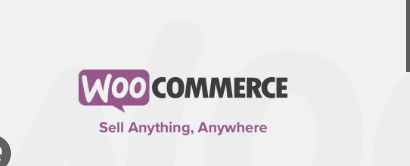

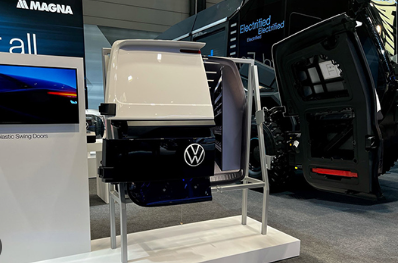

Leave a Reply